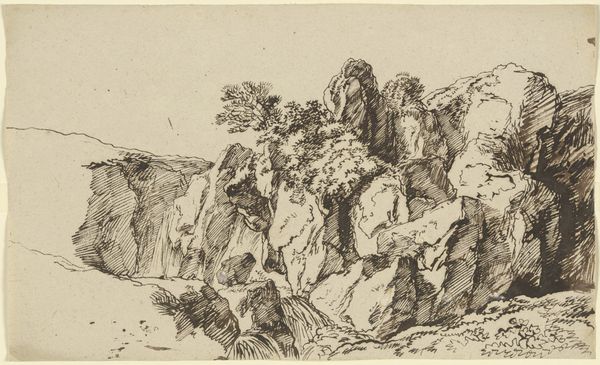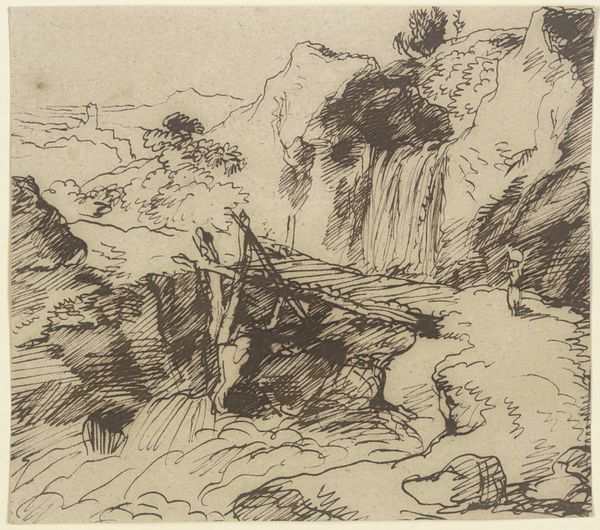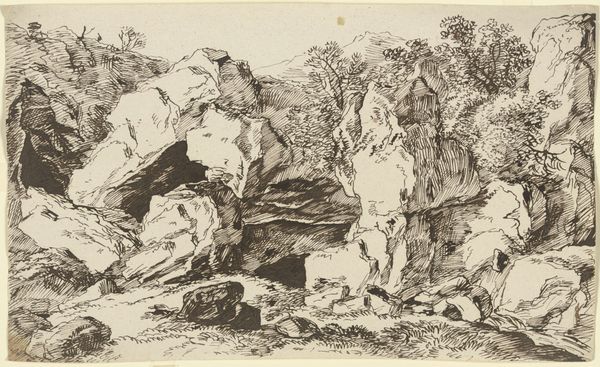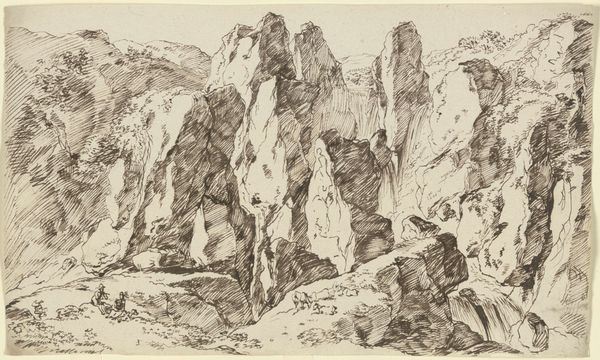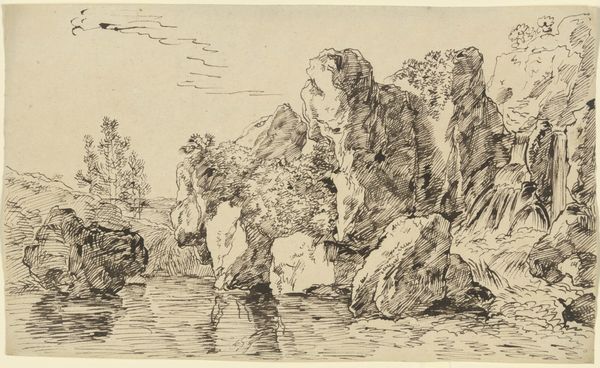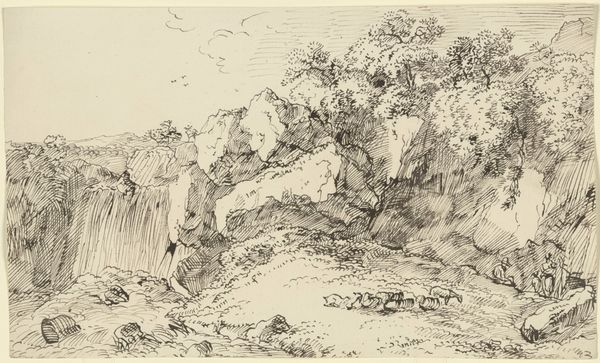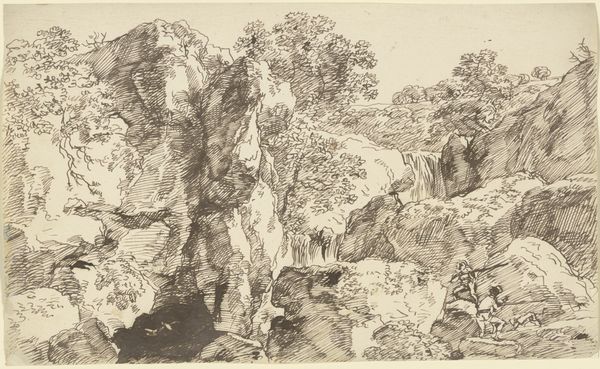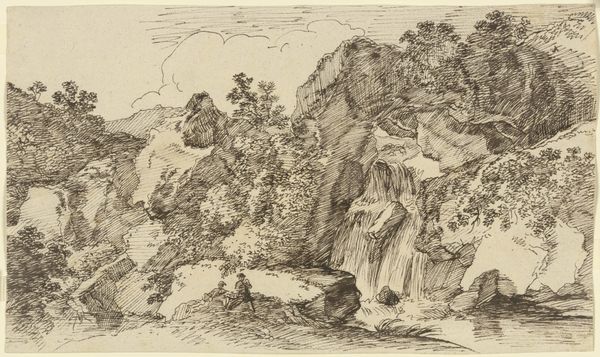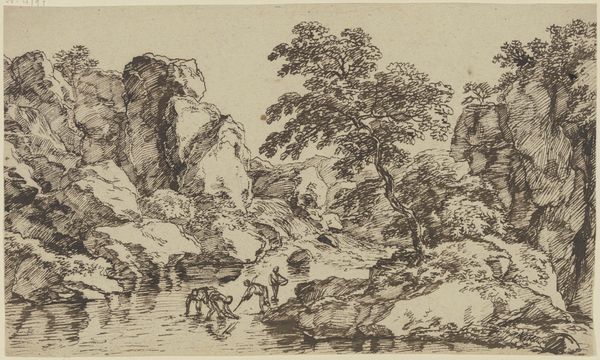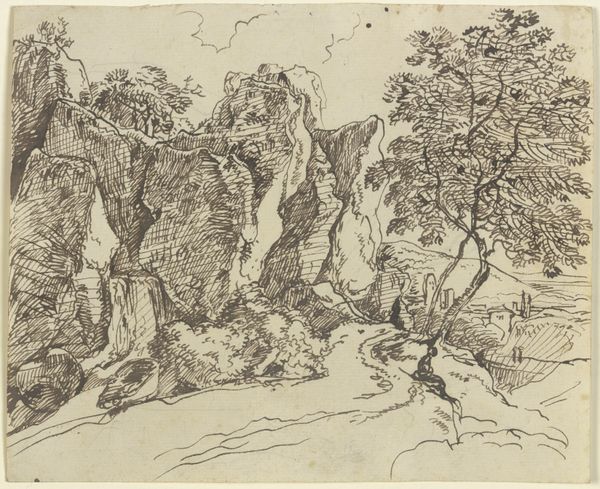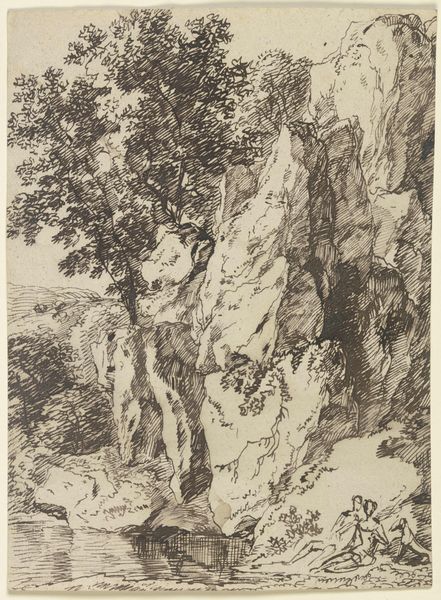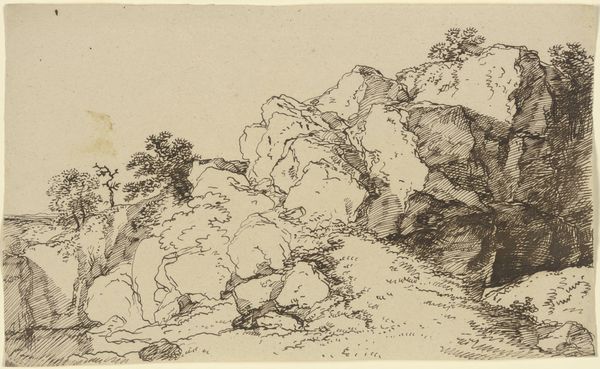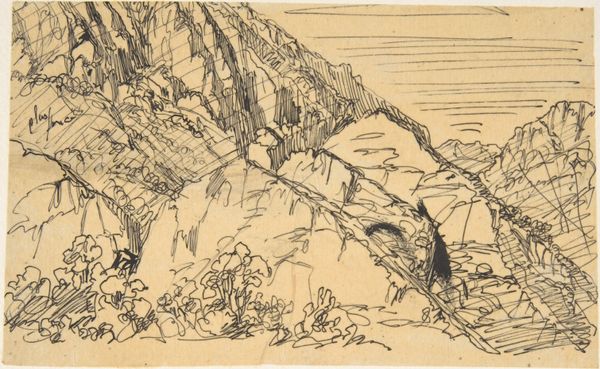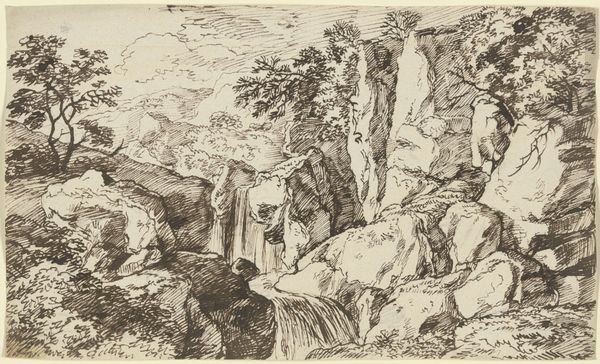
drawing, ink, pen
#
drawing
#
ink drawing
#
pen drawing
#
landscape
#
figuration
#
ink
#
romanticism
#
line
#
pen
Copyright: Public Domain
Curator: Welcome. We're standing before Franz Kobell's pen and ink drawing, "Zwei Wanderer in einer Gebirgsschlucht," which translates to "Two Wanderers in a Mountain Gorge." Editor: It immediately evokes a feeling of the sublime—a rather imposing landscape dwarfing those two figures huddled at the base. The heavy, dark lines amplify the weightiness of the rocks and the implied dangers of the gorge. Curator: I concur. Kobell masterfully uses line work to define form and create a sense of depth. Note how the density of the lines increases in areas meant to recede into shadow. The composition is cleverly structured to draw your eye from the figures up through the rock formations. Editor: And it begs the question, what are these wanderers seeking, or escaping from? This type of scene, romanticized and rugged, served to reflect back the emotional experience of early industrialists seeking solace in nature while also furthering destructive practices via exploration, extraction, and leisure. Curator: A potent observation. Yet I'd also highlight Kobell’s deliberate use of contrasting textures. The smooth, blank paper of the sky emphasizes the rough, jagged edges of the rocks. Observe the mark-making; its rhythm establishes movement, the wanderer’s trajectory. Editor: But let's remember that romanticism often sidelined the narratives of those excluded from these natural paradises—peasants displaced, indigenous populations erased. Kobell's image might unintentionally highlight the power dynamics at play in how land is perceived and owned. How the picturesque has served to elide difficult colonial, ecological histories. Curator: Certainly a crucial reading. Though I am drawn to the economy of the composition and those delicate parallel strokes describing form, depth. Each stroke plays its critical role in generating both an atmosphere and a very sophisticated, balanced image. Editor: Seeing those tiny figures juxtaposed against the vast, unknowable landscape – it provokes thoughts about human agency in a rapidly industrializing world and what it might mean to get 'lost' within idealized renderings that belie more fraught socioeconomic arrangements. Curator: I appreciate your insights. It highlights that the inherent ambiguities residing in Kobell's landscapes extend into the arena of broader concerns beyond stylistic achievement. Editor: And remind us, even landscapes, often presented as pristine and universal, can carry with them the weight of the past, shaping our understanding of the present. Thank you for pointing that out.
Comments
No comments
Be the first to comment and join the conversation on the ultimate creative platform.
